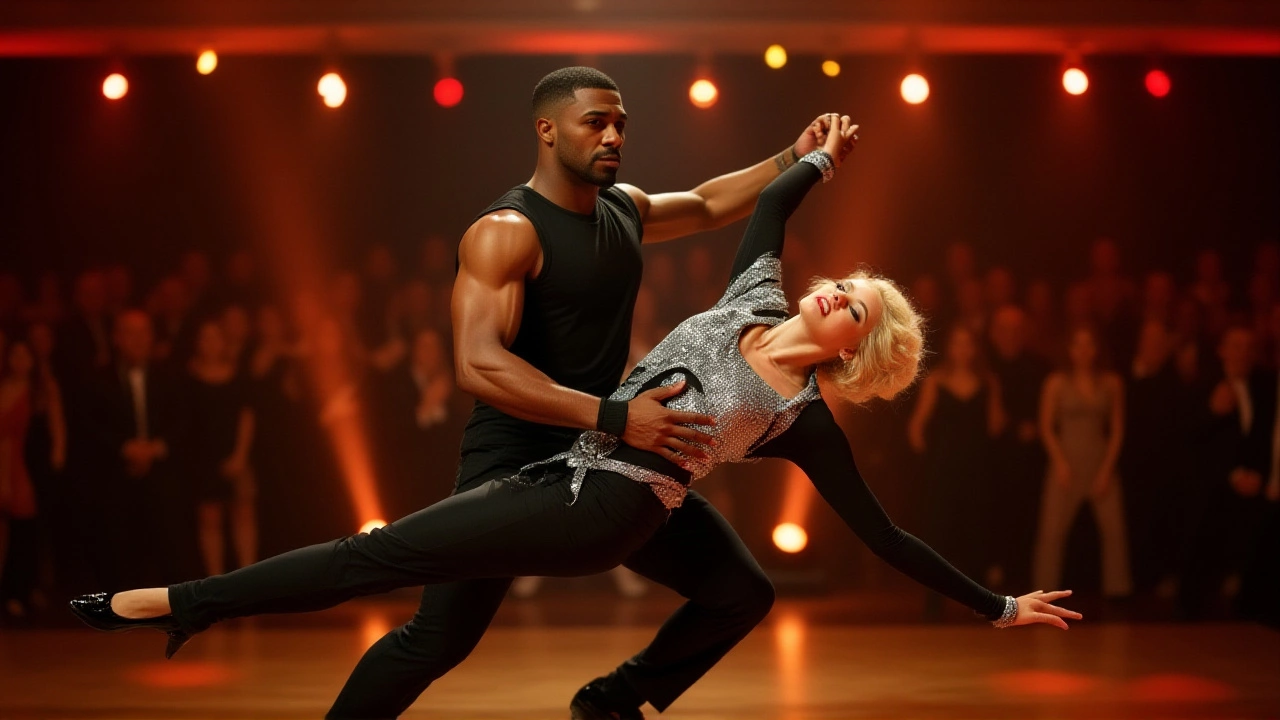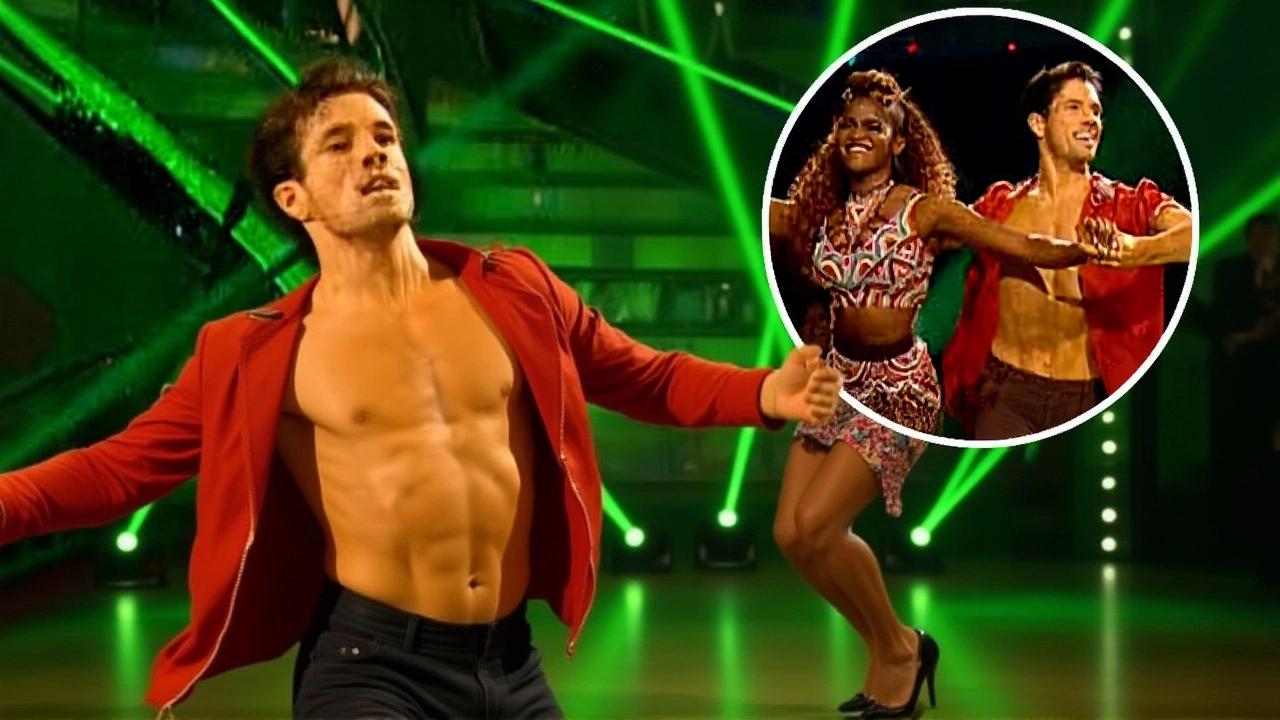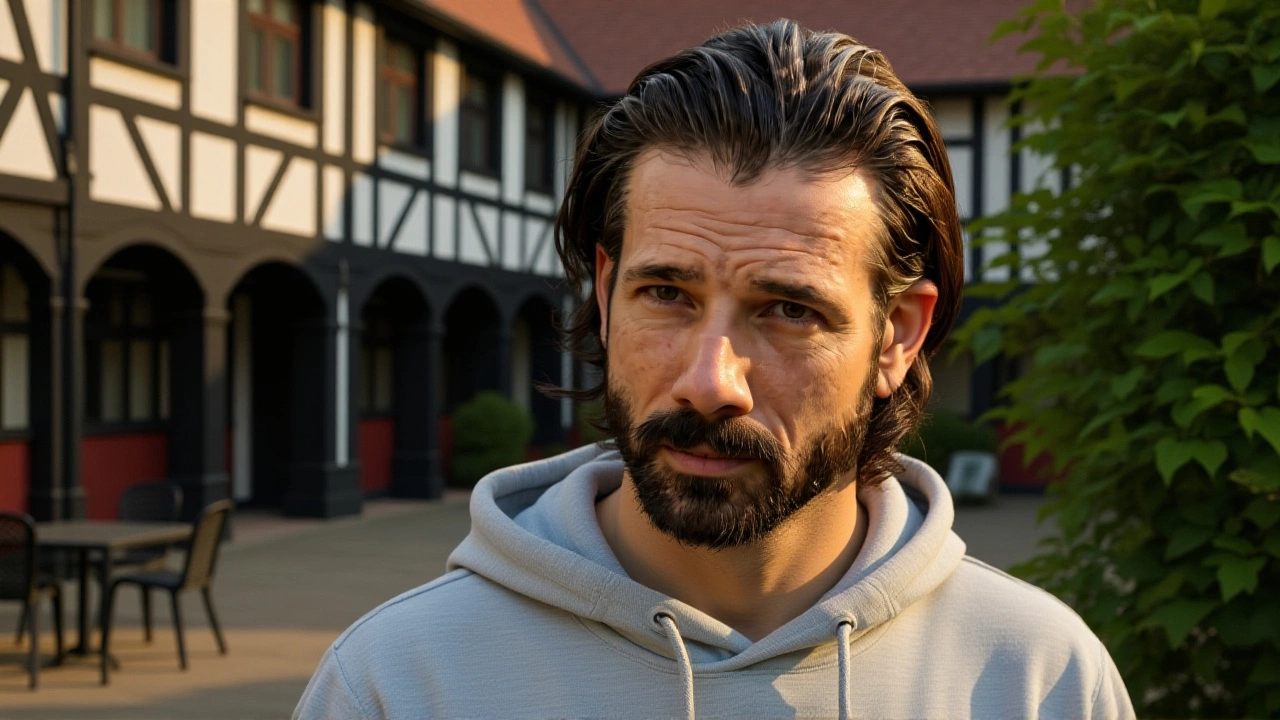When Donny Clark broke down in silence during a quiet kitchen scene on Hollyoaks Dee Valley on November 19, 2024, viewers didn’t just witness a character’s pain—they saw the raw, unspoken truth of male sexual assault. The revelation that Donny Clark, played by Louis Emerick, was raped by Griff Farnedge during an undercover police operation wasn’t just a twist. It was a mirror held up to Dodger Savage, portrayed by Danny Mac, who’d already survived the same horror. Both men, trapped in the same brutal operation, were violated by the same man. Yet one speaks. The other shuts down. And that’s where the real story begins.
Two Survivors, One Trauma, Zero Same Responses
It’s easy to assume trauma looks the same. It doesn’t. Dodger Savage told Cleo McQueen, his close friend and confidante, in a trembling, tear-filled conversation. He didn’t hide. He didn’t pretend. He let the weight land. Meanwhile, Donny Clark buried his pain under silence, sarcasm, and a forced smile. He’s still showing up for work. Still cooking meals. Still kissing his wife, Misbah Maalik, played by Harvey Virdi, who says she “never stopped loving him despite his errors.” But she doesn’t know the truth. Not yet.
The twist? The person who exposed Donny’s secret—Sully, the volatile son of criminal Froggy Black—is the very man who raped them both. Sully didn’t just reveal the truth to humiliate Donny. He did it to control him. And now, as Sully continues to taunt Donny at work, Dodger watches in growing horror. He’s trying to help. He’s asking questions. He’s reaching out. But Donny just says, “Get back to work.” That line isn’t defiance. It’s survival.
A Story Built With Survivors, Not Just Writers
This isn’t just drama. It’s advocacy. We Are Survivors, the UK-based charity supporting male and female sexual assault survivors, worked directly with the Hollyoaks writing team. Their CEO, Duncan Craig, told reporters: “It was important to us that we show the reality of the impact of rape—that no two people deal with the impact in the same way.” That’s why the storyline avoids clichés. No quick recovery. No heroic monologue. Just two men, broken in different ways, trying to breathe.
The charity provided script feedback, emotional guidance, and even advised on how to portray the aftermath of trauma without sensationalism. The result? A storyline that feels painfully real. When Dodger later reports his assault to the Dee Valley Police Station, Sully will be there—standing beside him as an officer. The tension isn’t just dramatic. It’s psychological warfare. How do you report a crime when your abuser is the one taking your statement? How do you find justice when the system you trusted is the one protecting your attacker?

The Silent War at Home
At home, Donny’s trying. He’s making tea. He’s asking Misbah about her day. He’s even mentioned fixing the leaky faucet she’s complained about for months. But every gesture feels like a question mark. She’s hopeful. She’s patient. She’s still holding space for him. But hope doesn’t fix trauma. And silence doesn’t heal.
Meanwhile, Dodger’s own journey is fracturing. In a recent YouTube video titled “Has Dodger Worked It All Out?”, Channel 4’s official Hollyoaks channel hints he’s misreading his own recovery. “Dodger’s got it all wrong!” the description reads. Is he projecting his need to speak onto Donny? Is he assuming healing looks like confession? Or is he just afraid that if Donny breaks, he’ll have to face his own pain again?
What Comes Next? The Law, The Lies, The Truth
Upcoming episodes, airing the week after November 19, 2024, will show Dodger giving his formal statement to the Superintendent. Sully will be there. Watching. Smiling. Maybe even nodding along. And if the show follows real-life patterns—which it seems determined to do—then the system will fail. Again. Because in 2024, only 1 in 5 male rape victims report to police. And when they do, they’re often met with disbelief, skepticism, or worse: silence.
Donny’s arc may not end in a courtroom. It may end in a hospital bed, a therapist’s office, or simply in a quiet moment where he finally looks at Misbah and says, “I need you to know something.” That moment won’t be loud. It won’t be dramatic. But it will be the most powerful thing on television this year.

Why This Matters
Sexual assault against men is still shrouded in stigma. We talk about it in headlines after celebrity cases. But rarely do we see the daily, quiet devastation—the man who stops hugging his kids. The husband who sleeps with the light on. The officer who can’t stand the smell of aftershave. Donny Clark and Dodger Savage aren’t just characters. They’re stand-ins for thousands of men who’ve never spoken a word.
The fact that Hollyoaks chose to center this story—not as a plot device, but as a mirror—is revolutionary. And it’s not without risk. Viewers may turn away. Critics may call it “too heavy.” But if one man watches this and finally calls a helpline? If one father talks to his son? If one survivor feels less alone? Then this isn’t just TV. It’s a lifeline.
Frequently Asked Questions
How does this storyline challenge common myths about male sexual assault?
The storyline directly counters the myth that men don’t get raped or that they should be “tough enough” to handle it. Donny Clark’s silence and Dodger Savage’s emotional struggle show that trauma responses vary widely—no one reaction is “right.” The show also highlights how perpetrators often remain in positions of power, as Sully does as a police officer, making reporting nearly impossible.
Why is Sully’s presence during Dodger’s police statement significant?
It mirrors real-world cases where survivors face their abusers in institutional settings—like workplaces or police stations—creating retraumatization. Sully’s role as an officer adds systemic betrayal: the very institution meant to protect is complicit. This dynamic is rarely shown on TV, making the scene a powerful commentary on institutional failure.
What role did We Are Survivors play in shaping this storyline?
The charity provided expert consultation to ensure accurate portrayals of trauma, avoiding sensationalism. Their CEO, Duncan Craig, emphasized showing diverse survivor responses. They likely advised on dialogue, emotional pacing, and how to depict the aftermath without exploiting pain—turning fiction into a tool for education and awareness.
Is this storyline based on real events?
While not tied to one specific case, it draws from documented patterns: male survivors are less likely to report, often face disbelief, and are frequently assaulted by someone they know or trust—like Sully, who was part of the same operation. The collaboration with We Are Survivors ensures the narrative reflects real survivor experiences across the UK.
How does this affect Donny’s relationship with Misbah Maalik?
Misbah’s optimism suggests she’s willing to fight for their marriage, but Donny’s silence creates a dangerous gap. If he never tells her, the emotional distance will widen. If he does, it could either heal them or shatter what’s left. The show is deliberately leaving this unresolved—because real recovery doesn’t follow a script.
What’s the timeline for Dodger’s official report?
Dodger is scheduled to file his formal statement at the Dee Valley Police Station in episodes airing the week following November 19, 2024. The timing is critical—it places him in direct confrontation with Sully, the attacker, during the report, raising the stakes for both his emotional safety and the integrity of the investigation.
